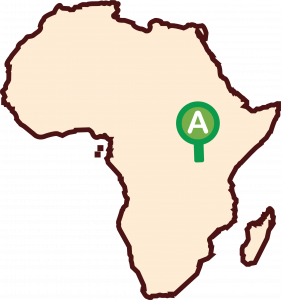H3Africa ELSI Research Project
Ethical and Social issues in Informed Consent Processes in African Genomic Research
The Goal: To contribute to a better understanding of the ethical, legal, and social issues (ELSI) associated with various genomic research stakeholders in low resource settings.
Project Leads
The Problem
Genomic research raises a unique set of ethical, legal, and social challenges for further exploration to ensure that there is adequate protection of research participants, communities, and researchers. In Africa, challenges arise in determining the most appropriate approach for obtaining informed consent given the vulnerabilities arising from the complexity of genomic research; the high background poverty; low literacy levels; and linguistic/cultural differences between different populations in Africa. There are also concerns about research participants’ ability to understand the concepts of genomic research, storage and future use of biological samples, and the potential risk of stigma or exploitation of study communities.
Project Strategy
- Explore culturally appropriate strategies of enhancing understanding during the consent and assent process in genetic/genomics research.
- Identify the best practices for improving understanding of the informed consent process leading to enhanced protection of the rights and welfare of participants.
- Employ mixed methods including surveys, direct observation of informed consent session, content analysis of consent documents, focus group discussions (FGDs), and in-depth interviews with selected stakeholders.
Outcomes & Impact
- Assessment of the quality of 243 informed consent documents and 77 material transfer agreements was done.
- A survey was conducted involving 187 genomic researchers, in-depth interviews with 15 researchers and FGDs with 16 nurses involved in obtaining informed consent for genetic or genomic research. This aims to explore their knowledge, perceptions, and experience on ethical, legal, and social implication (ELSI) of research involving genomics and the collection, storage, and future use of human biological materials.
- Assessment of understanding of consent was done for 370 participants of three on-going genomic studies. In addition, 10 FGDs were conducted with 80 parents, minors and young adults. Researchers aim to identify ELSI related knowledge, experiences, and perceptions of research participants including caregivers’ involvement in the informed consent process.
- Two surveys involving 122 parents and 100 adolescents were conducted. In addition, 10 FGDs were conducted involving 42 parents and 42 adolescents participating in the CafGEN study. Researchers aim to explore parental and adolescent attitudes, preferences, and experiences in the return of individual genetic/genomic research results.
- In-depth interviews were conducted with 15 researchers conducting paediatric/adolescent genomic research. The aim is to explore experiences and perspectives of genomic researchers on the return of individual results in research involving minors as research participants.
- Three papers have been published so far on informed consent for genetics/genomic research and return of individual genomic research results to participants.







